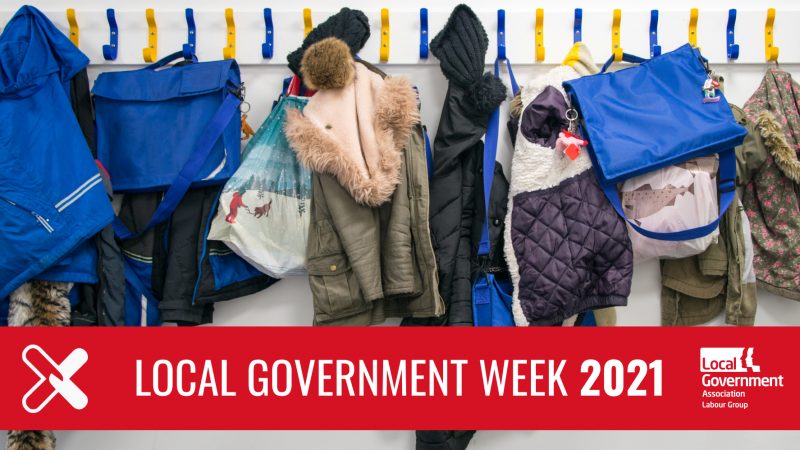
This past year has been a year like no other, and communities across the country have shown their resilience and determination to pull together as we have navigated our way through uncertainty and become used to a new way of living. Councils have been at the forefront of the local response. The role of councils has been praised by communities, our partners and all of our schools regardless of their governance structures. We know that we could do so much more if government would accept our central role in our localities and fully fund us to do the job we need to do.
One section of our communities, though, have disproportionately borne the brunt of the pandemic: children and young people. They have had their education interrupted and disrupted for the past year and we cannot underestimate the effect of this, both in terms of their academic achievement and consequently their future life chances, but also on their mental health and wellbeing. From uncertainty around exams to children starting school for the first time, or to those making the difficult transition from primary to secondary, Covid has turned already big steps completely upside down.
Children have been forced to learn remotely, something most of our schools were not set up to do when this first started. Parents have been trying to work from home while also home educating their children and, as a result, consistency has been lost and relationships have inevitably changed. What has been underlined time and time again during this pandemic is the divide between disadvantaged children and families and their more advantaged peers. This has been due to not having access to the internet at home, to devices such as a laptop or tablet on which to undertake lessons, or not having a proper space at home to do their schoolwork.
But this divide goes even further than learning. Nobody reading this can have failed to see the reports on the news of children who are entitled to free school meals struggling to access sufficient and nutritious food whilst they have not been able to attend school. It is this failure that weighs most heavily on us as a society. How can we, as one of the richest nations in the world, be in a position where our children are not fed? Labour’s vision must address the shocking levels of inequality that have been exposed by the virus.
There have been so many examples over the past year of the absolutely vital role councils play – and nowhere is this more evident than in the sphere of children, families and education. The response across the country to the free school meals crisis was led by councils that stepped in to provide the help that was needed, knowing the difference that it would make to children and families locally.
Children and young people, like many of us, have been isolated from their friends and family and it is difficult to judge the impact of that isolation on developing minds. The needs of children and young people must be placed at the centre of the Covid recovery. If we do not get this right then the gap between our most vulnerable children and their peers will only increase and we will be seeing the impact of Covid on mental health for years to come.
Children and young people simply must be our priority as we recover together, ensuring lost education is recovered and mental health is safeguarded. Without doubt, this needs to be a national priority to which the government fully commits. Councils must be included as the key partner to move us out of this crisis. The importance of our role needs to be recognised nationally so that we can take our proper place establishing and delivering the route map towards recovery.




More from LabourList
‘The High Court judgment brings more uncertainty for the trans community’
‘There are good and bad businesses. Labour needs to be able to explain the difference’
‘This ruling should now remove any remaining barrier to approval of EHRC code’